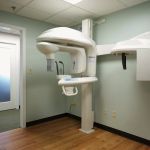How to Clean Your Baby’s Gums Before Teeth Appear
As a new parent, ensuring your baby’s health and comfort is always a top priority. While you may be focusing on all the other aspects of your baby’s development, one essential aspect often gets overlooked: oral hygiene. Even before your baby’s teeth start to appear, cleaning their gums is an important step in establishing good oral hygiene habits. Keeping your baby’s gums clean not only prevents infections but also helps your baby adjust to oral care, making the transition to brushing their teeth much smoother once those first teeth emerge.
- Why Is It Important to Clean Your Baby’s Gums?
- When Should You Start Cleaning Your Baby’s Gums?
- What to Use for Cleaning Your Baby’s Gums?
- Step-by-Step Guide to Cleaning Your Baby’s Gums
- Common Mistakes to Avoid When Cleaning Baby’s Gums
- Transitioning from Gums to Tooth Care
Why Is It Important to Clean Your Baby’s Gums?
Cleaning your baby’s gums is essential for several reasons. First, it helps remove any residue from milk or formula that may build up and potentially lead to bacteria growth. Baby gums are soft, but they are still susceptible to infections if not cleaned properly. Regular gum cleaning also introduces your baby to the concept of oral hygiene, making future dental care practices more familiar and less intimidating.
When Should You Start Cleaning Your Baby’s Gums?
It’s never too early to start cleaning your baby’s gums. You can begin cleaning your baby’s gums even before the first tooth emerges. At this stage, your baby’s gums may appear smooth, but milk residue can still accumulate, which can lead to bacteria growth. The American Dental Association recommends starting gum cleaning at least once a day as soon as your baby starts feeding. This gentle routine will help get them used to having their mouth cleaned and promote a healthy environment for the upcoming teeth.
What to Use for Cleaning Your Baby’s Gums?
There are several options available to help you clean your baby’s gums. You can use a soft, clean washcloth or a specially designed baby gum brush. Soft gauze squares or wipes also work well, as they can be gently wrapped around your finger to clean the gums. These tools are gentle and safe for your baby’s delicate gums. Avoid using any toothpaste or harsh chemicals at this stage, as babies don’t need fluoride until they have their first teeth.
Step-by-Step Guide to Cleaning Your Baby’s Gums
Follow this simple step-by-step guide to effectively clean your baby’s gums:
- Wash Your Hands: Always start by thoroughly washing your hands to prevent transferring bacteria into your baby’s mouth.
- Choose the Right Tool: Use a soft washcloth, gauze pad, or a baby finger brush. Wet it with warm water.
- Gently Wipe Your Baby’s Gums: Place the cloth or gauze around your finger and gently rub it along your baby’s upper and lower gums, using soft, circular motions.
- Be Gentle: Ensure you are gentle while cleaning, as the gums are sensitive at this stage. You don’t want to cause any discomfort or irritation.
- Make it a Routine: Make gum cleaning part of your daily routine, preferably after feedings. This ensures any milk residue is removed.
Common Mistakes to Avoid When Cleaning Baby’s Gums
While cleaning your baby’s gums may seem simple, there are a few common mistakes you should avoid:
- Using Hard or Abrasive Materials: Avoid using any rough materials that can harm your baby’s delicate gums. Stick to soft washcloths or specialized baby brushes.
- Forgetting to Wash Hands: It’s essential to wash your hands before cleaning your baby’s gums to prevent introducing bacteria into their mouth.
- Not Cleaning Regularly: Cleaning your baby’s gums only occasionally can lead to the buildup of harmful bacteria. Regular cleaning is key.
Transitioning from Gums to Tooth Care
Once your baby’s first teeth start emerging, it’s time to transition from gum cleaning to tooth care. At this stage, you can introduce a soft, baby-sized toothbrush and start brushing your baby’s teeth twice a day. It’s also important to begin using a fluoride toothpaste as recommended by your pediatric dentist. This transition is a natural progression, and the habits you’ve established with cleaning their gums will make brushing their teeth much easier and more comfortable.
Taking care of your baby’s gums before their teeth appear is a vital step in ensuring long-term oral health. Start early, be consistent, and make it a positive experience. Your baby will soon grow into healthy, happy habits that will serve them well for years to come. If you’re interested in learning more about oral care or purchasing products like the best baby toothbrushes and gum care accessories, visit Dentistry Toothtruth.







 Cash Family Orthodontics4.0 (141 review)
Cash Family Orthodontics4.0 (141 review) Dental365 - Bellmore4.0 (318 review)
Dental365 - Bellmore4.0 (318 review) Michael E Krone & Associates5.0 (39 review)
Michael E Krone & Associates5.0 (39 review) Rittenhouse Dental Group4.0 (91 review)
Rittenhouse Dental Group4.0 (91 review) Oral & Maxillofacial Surgery Associates4.0 (1440 review)
Oral & Maxillofacial Surgery Associates4.0 (1440 review) Dr. Geetha J. Damodaran, DDS5.0 (2 review)
Dr. Geetha J. Damodaran, DDS5.0 (2 review) The Importance of Oral Health Education During Pregnancy for a Healthy Pregnancy
The Importance of Oral Health Education During Pregnancy for a Healthy Pregnancy Best Tips for Brushing Your Teeth Properly for Healthy Gums: Essential Techniques for Oral Health
Best Tips for Brushing Your Teeth Properly for Healthy Gums: Essential Techniques for Oral Health Why Skipping Dental Checkups Can Lead to Bigger Oral Health Problems
Why Skipping Dental Checkups Can Lead to Bigger Oral Health Problems Advantages of Porcelain Dental Restorations
Advantages of Porcelain Dental Restorations How Can Diabetes Cause Tooth and Gum Problems? Preventing and Managing Oral Health Issues
How Can Diabetes Cause Tooth and Gum Problems? Preventing and Managing Oral Health Issues Healthy Habits for Promoting Good Oral Health and Hygiene: Tips for a Healthy Smile
Healthy Habits for Promoting Good Oral Health and Hygiene: Tips for a Healthy Smile